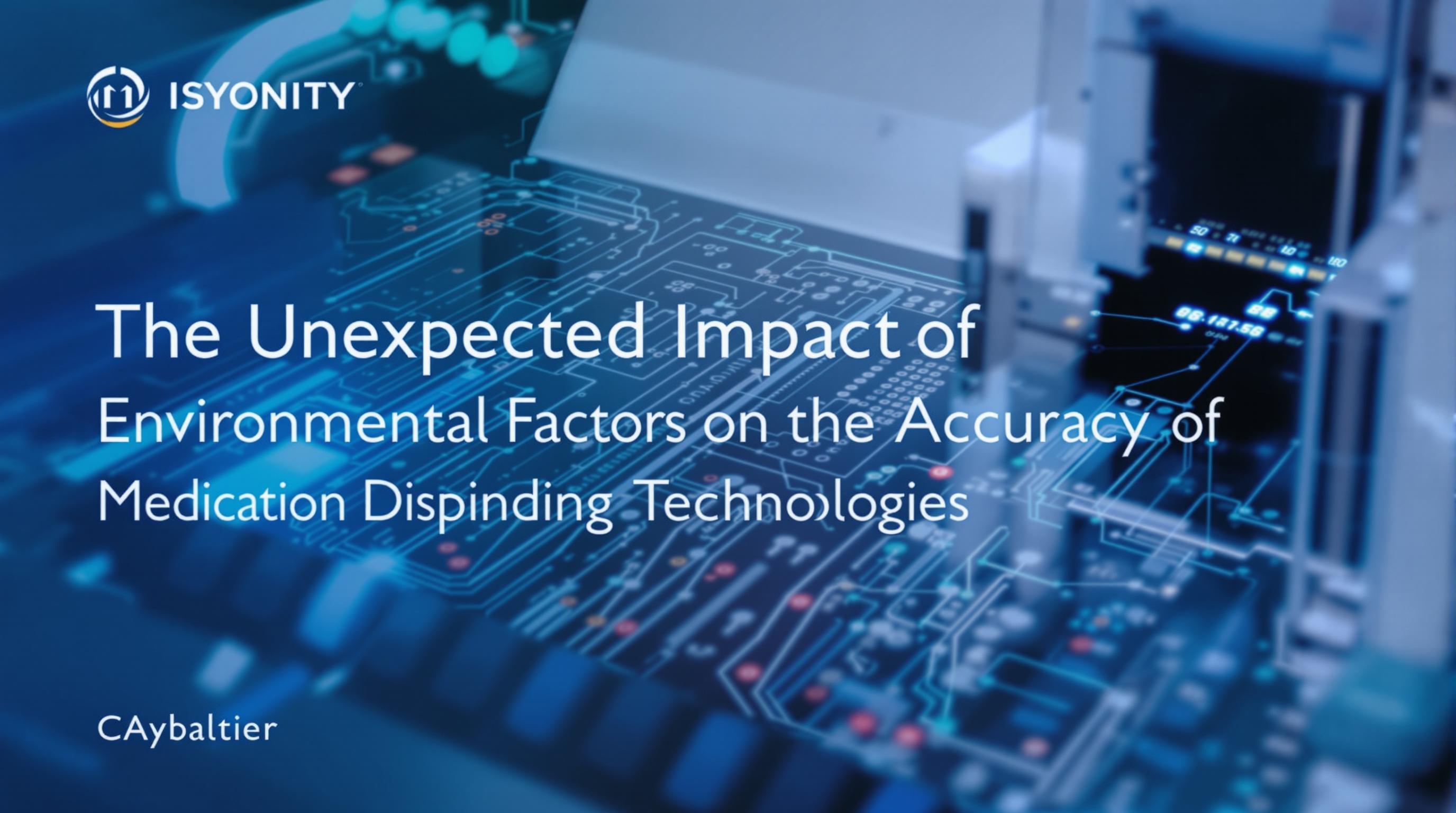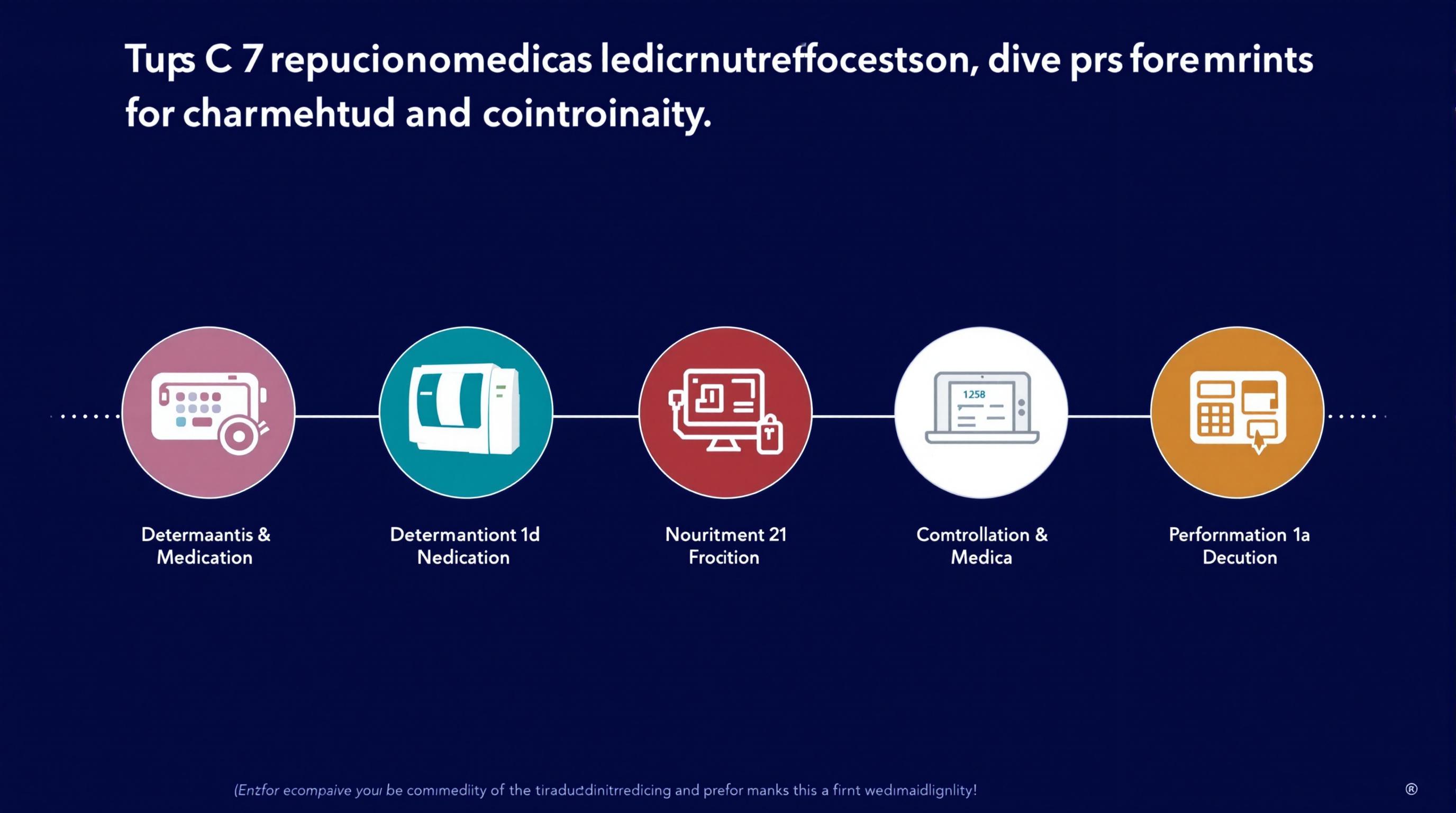Related Articles
- The Unexpected Impact of Environmental Factors on the Accuracy of Medication Dispensing Technologies
- Exploring the Influence of Mental Health Stigma on Accessibility and Affordability of Coverage in Modern Insurance Plans
- How Cloud Storage Quirks Are Quietly Complicating Patient Data Protection in Modern Healthcare Settings
- Top 6 Emerging Medical Billing Platforms Revolutionizing Practice Revenue Cycles Since 2019
- When Digital Distance Deepens Divide: Surprising Social Costs of Remote Health Services in Underserved Communities
- The Unexpected Role of EHR Usability in Physician Burnout and Strategies to Reclaim Workflow Balance
How Pharmacogenomics Is Quietly Reshaping Medication Choices in Prescription Workflows Worldwide
How Pharmacogenomics Is Quietly Reshaping Medication Choices in Prescription Workflows Worldwide
Pharmacogenomics is transforming how medications are prescribed by tailoring drug choices to individual genetic profiles, making treatments more effective and safer. This quiet revolution is subtly integrating into prescription workflows worldwide, reshaping healthcare with precision medicine.
“Imagine a world where your prescription isn’t just based on symptoms but on your unique DNA.” This isn’t futuristic fiction—it’s pharmacogenomics, an emerging science that studies how genes affect a person’s response to drugs. As a 33-year-old biomedical enthusiast, I find it fascinating how this field is reshaping medication choices globally, quietly enhancing clinical decisions and patient outcomes.
Consider the case of a 45-year-old woman suffering from depression who tried multiple antidepressants over several years before finally finding one that worked. If her doctor had access to pharmacogenomic testing, they might have predicted which drug would be effective and avoided the trial-and-error months. Clinical studies have shown that nearly 30% of patients do not respond well to conventional antidepressants—a significant figure highlighting the need for tailored therapies (Gordon et al., 2021).
The Science Behind Pharmacogenomics
At its core, pharmacogenomics investigates how genetic variations affect drug metabolism, efficacy, and safety. Enzymes such as cytochrome P450 play a pivotal role in processing medications. Variations in these enzymes among individuals can lead to different treatment outcomes. For instance, the CYP2D6 gene affects how patients metabolize opioid painkillers; poor metabolizers may receive inadequate pain relief, while ultra-rapid metabolizers risk toxicity (FDA, 2020).
Impacts on Prescription Workflows
Healthcare providers are increasingly integrating pharmacogenomic data into electronic health records (EHRs), streamlining prescription workflows. Instead of a one-size-fits-all approach, pharmacogenomics facilitates data-driven decisions. Alerts and guidelines embedded in EHR systems inform prescribers about genetic considerations, reducing adverse drug reactions and improving efficacy.
In fact, a 2019 survey revealed that institutions with integrated pharmacogenomic workflows reported a 35% reduction in adverse drug events (Stanford Medicine, 2019). This points toward enhanced patient safety and cost savings, critical in modern healthcare systems overloaded by medication errors.
Global Adoption: Different Roads, Same Destination
Let’s take a quick tour around the globe. The United States, Europe, and Japan are leading the adoption of pharmacogenomic testing, but approaches differ. In the U.S., commercial labs offer direct-to-consumer testing, giving patients more power in their health. Meanwhile, European countries emphasize regulatory oversight and integration into public healthcare. Japan, driven by government incentives, embeds pharmacogenomics in national health strategies.
A Closer Look: The Netherlands' Success Story
The Netherlands provides an excellent case study. Its national pharmacogenomic database guides Dutch prescribers in selecting appropriate medications. For example, codeine prescribing decreased substantially after implementing genotype-guided protocols, improving patient safety among poor metabolizers of CYP2D6 (Swen et al., 2018).
Interestingly, even within countries, there's variability influenced by infrastructure, healthcare policies, and education for providers. This patchwork pattern highlights the need for standardized guidelines and training to maximize pharmacogenomics’ potential worldwide.
Challenges and Skepticism
Despite promising advances, pharmacogenomics faces hurdles. Cost, limited reimbursement by insurance, and uneven clinician awareness slow widespread adoption. Some critics argue that clinical evidence remains insufficient for many gene-drug pairs, urging caution before replacing traditional prescribing models.
But the tide is turning. Ongoing trials and meta-analyses continue to build a case for pharmacogenomic-guided prescribing. Most notably, the Precision Medicine Initiative and global consortia are pooling data to enhance reliability and applicability across populations.
Humor Break: Why Did the Gene Cross the Road?
Because it wanted to avoid the adverse drug reaction on the other side! Jokes aside, understanding these genetic 'crosswalks' is crucial in preventing medication mishaps that can sometimes be as frustrating as that punchline.
Pharmacogenomics and Patient Empowerment
One exciting byproduct of this technology is patient empowerment. Armed with pharmacogenomic information, patients become active partners in their treatment decisions. This aligns with a broader cultural shift toward personalized healthcare, where patient preferences and unique biology guide choices.
A survey targeting patients aged 18 to 65 showed 70% would opt for genetic testing to guide their medication if cost and access barriers were removed (Genetic Literacy Project, 2022). For many, the reassurance of personalized therapy outweighs the complexity of genetics.
The Future: AI Meets Pharmacogenomics
Looking ahead, artificial intelligence (AI) promises to supercharge pharmacogenomics. Machine learning algorithms can analyze massive databases of genetic and clinical data to predict optimal medications with unprecedented accuracy. For example, early pilot studies combining AI with pharmacogenomics have improved cancer treatment personalization, tailoring chemotherapy regimens to both tumor genetics and patient metabolism profiles (NCI, 2023).
Integrating AI into prescription workflows could reduce clinician workload, minimize human error, and unlock new insights into drug-gene interactions that remain poorly understood.
From Theory to Practice: Pharmacogenomics in Action
Let me tell you about Jake, a 62-year-old with cardiovascular disease. After several hospitalizations due to bleeding side effects from blood thinners, genetic testing revealed he was a poor metabolizer of warfarin. Switching to a dosage guided by his genotype reduced complications and hospital visits, improving his quality of life dramatically. Stories like Jake's are becoming increasingly common as pharmacogenomics enters routine care.
Similarly, hospitals are beginning to pre-emptively genotype patients for genes relevant to commonly prescribed drugs, embedding genetic data into patient records before issues arise. This proactive approach reduces trial and error, creating a smoother workflow for clinicians and safer experiences for patients.
Statistics Speak Volumes
A 2020 meta-analysis concluded that pharmacogenomic-guided prescribing improved drug efficacy by 20% and reduced adverse drug reactions by 50% compared to standard care (Yang et al., 2020). These numbers are not just statistics—they represent lives improved, hospital stays avoided, and healthcare costs saved.
It’s promising to see pharmaceutical companies also embracing pharmacogenomic data to develop drugs targeted to specific genetic profiles, heralding a new era of “precision therapeutics.”
Conclusion: The Quiet Revolution
Pharmacogenomics is no longer a distant concept relegated to research labs; it has quietly permeated prescription workflows worldwide, transforming healthcare one genome at a time. For patients, clinicians, and healthcare systems alike, embracing this science promises a future where medication choices are smarter, safer, and more personalized.
In the words of Dr. Francis Collins, former director of the NIH, “Precision medicine holds the promise of aligning tailored treatments not only with specific diseases but also with individual genetic variations — ultimately improving outcomes and reducing healthcare costs.” Pharmacogenomics is indeed reshaping the landscape of medicine, albeit quietly, but powerfully.
References:
FDA (2020). Table of Pharmacogenomic Biomarkers in Drug Labeling. U.S. Food and Drug Administration.
Gordon, R., et al. (2021). Impact of pharmacogenomics on antidepressant prescribing: A systematic review. Journal of Clinical Psychiatry, 82(3), e453-e461.
Stanford Medicine (2019). Survey on Pharmacogenomics Implementation in Clinical Practice.
Swen, J.J., et al. (2018). Pharmacogenetics: From bench to byte—an update of guidelines. Clinical Pharmacology & Therapeutics, 103(4), 513-526.
Genetic Literacy Project (2022). Public Attitudes Toward Genetic Testing.
NCI (2023). AI and Pharmacogenomics in Oncology. National Cancer Institute.
Yang, L., et al. (2020). Meta-analysis on the clinical benefits of pharmacogenetic-guided therapy. Pharmacogenomics Journal, 20(2), 123-135.




